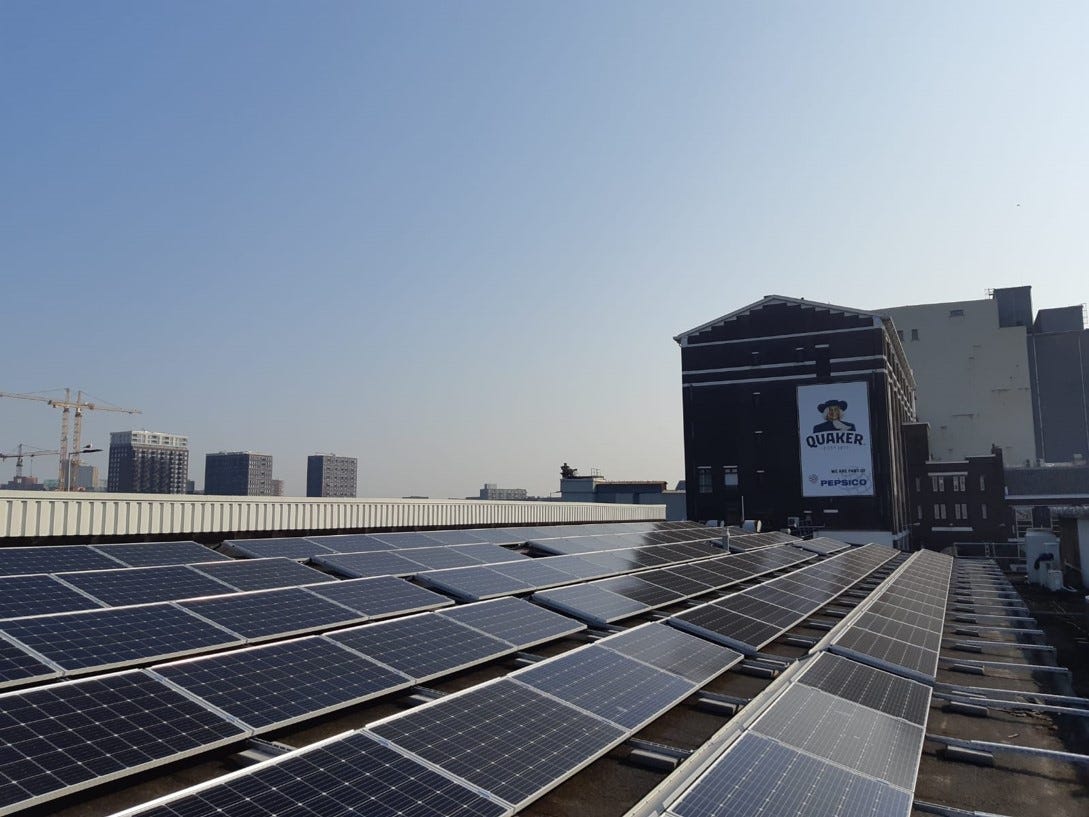News briefs: PepsiCo goes greener, Indian firm sees smog as resource
Plus, Massachusetts governor vetoes climate law, Baltimore battles Big Oil
PepsiCo adds a whole lot more fizz to its climate efforts
In a move likely to influence others in the food and beverage industry, drinks-and-snacks giant PepsiCo (PEP) has pledged to slash carbon emissions more than 40% by 2030 when compared against a 2015 baseline. The company, in an effort that more than doubles its previous climate objectives, plans to adjust farming, packaging and delivery practices to achieve the goal, according to a report in BakingBusiness.com. If achieved, the plan would result in the reduction of over 26 million tonnes of greenhouse gas emissions, or the equivalent of taking 5 million cars off the road for a year. The Purchase, N.Y.-based corporation also announced it aims to achieve net-zero emissions by 2040, which would be a decade ahead of the goal called for in the Paris Agreement.
India’s killer smog transformed into ink, paint and tiles
Operating in a country with the worst air quality in the world, an Indian company has found a way to extract black carbon from smog — and use it to make handcrafted building tiles and other products. The tile project was launched by Mumbai architect Tejas Sidnal, whose firm Carbon Craft Design partnered with Graviky Labs, a firm based in Cambridge, Mass., and New Delhi that previously created Air Ink, a technology that captures soot from cars and factories and converts it into pigments and paint. “Graviky Labs views pollution as a resource,” company founder Anirudh Sharma told CNN. “We are one of only a few companies in the world to capture these carbon emissions and turn them into new materials.” Carbon Craft Design is currently raising investment and hopes to start distribution in Europe this year, says Sidnal, adding that “we are swamped with inquiries from in and out of India.”
Bay State boss boots sweeping global warming legislation
Environmental activists are howling after a comprehensive climate change bill passed by the Democrat-controlled Massachusetts legislature was vetoed by the state’s Republican governor, Charlie Baker. “We cannot go back to the drawing board after two years spent crafting what would have been the strongest climate bill in the nation,” the Environmental League of Massachusetts said in a statement quoted by InsuranceJournal.com. “Stalling these critical advances is excruciating.” Baker’s press secretary, Sarah Finlaw, countered that the current legislation “could increase the cost of housing, possibly prevent the construction of affordable developments and potentially impact large sectors of the economy just as the Commonwealth is beginning to recover from the pandemic.” The bill would overhaul the state’s climate laws, reduce greenhouse gas emissions, create renewable energy jobs and protect poorer communities at higher risk from pollution.
Baltimore is bellwether for climate-change claims against Big Oil
In a landmark case, the U.S. Supreme Court is set to decide if American cities, states and counties can claim damages from more than a dozen major oil and gas corporations for their role in climate change. In its argument, Baltimore, Md. — in one of more than 20 similar suits brought by cities, states and counties in recent years — claims the companies, including ExxonMobil (XOM), Shell (RDS.A) and BP (BP), must pay for costs associated with climate change because they were fully aware their products cause global warming. The Eastern Seaboard metropolis has been severely affected by flooding due to heavy rain and rising seas caused by increased temperatures. If the Supreme Court decides in Baltimore’s favor, according to NPR, the ruling is likely to pave the way for cases against oil and gas companies to proceed in state courts across the country.
Skål! Warming heats up Scandinavian wine industry
Barely in existence at the turn of the century, Scandinavians have developed a booming wine industry as climate change heats up their region. With longer and warmer summers, Denmark now has about 90 commercial vineyards while Sweden has 40 and Norway boasts a dozen. Greg Jones, director of the wine studies program at Linfield College in Oregon, told Business Insider that typical growing seasons in the region have expanded by about six weeks in the past 50 years. The trend mirrors a large growth of wine production in England, where the industry was virtually non-existent before the 1980s.

